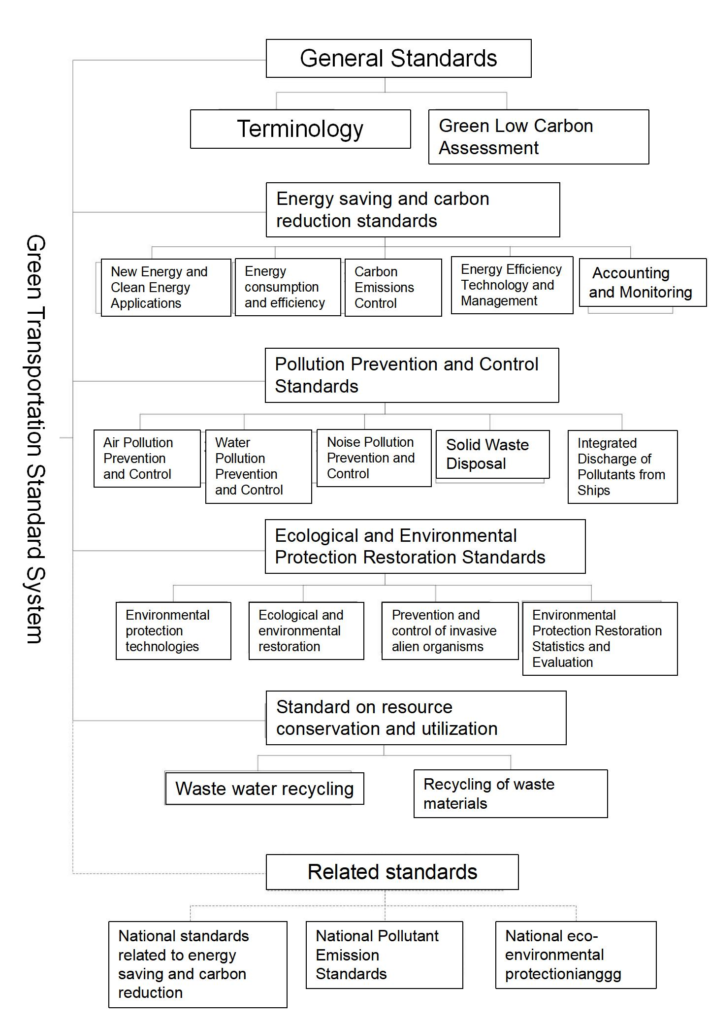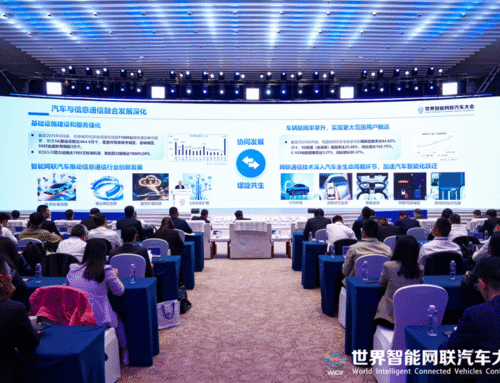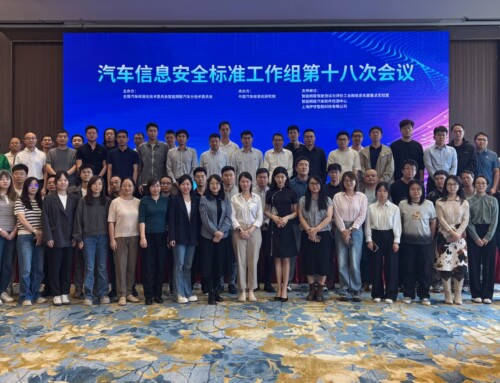On 18 August 2022, the Ministry of Transport (MOT) issued the “Green Transportation Standards System (2022)”. This system will greatly impact future green standards development within the transportation sector.
In 2016, MOT issued the “Green Transportation Standard System (2016)”, planning the development and revision of 80 green transportation standards. The scope of the Green Transportation Standard System (2022) aligns with its 2016 edition. This includes technical standards and engineering construction standards that are directly related to the development of green transportation in integrative transportation, on highways, and on waterways. The integrative transportation and urban passenger transportation standards involved in “Optimizing the transportation structure” and “Encouraging green commuting” are falling out of the standard system.
Overview of the Green Transportation Standards System (2022) is as follows:

The Green Transportation Standards System (2022) consists of 242 national and industry standards, including 11 general standards, 101 standards for energy conservation and carbon reduction, 78 standards for pollution prevention, 35 standards for ecological environmental protection and restoration, and 17 standards for the efficient and intensive use of resources. There are 44 standards that need to be revised and 47 standards that need to be developed, covering important standards like the construction of near-zero carbon transportation demonstration areas, evaluation of urban green freight distribution, hydrogen fuel cell bus configuration, urban rail transit green operation, and anti-pollution technology for underwater salvage operations. Moreover, in order to implement the green standards in a consistent manner, the standard system also includes 43 national standards and eco-environmental industry standards that are directly related to energy efficiency, carbon reduction, pollutant emission, and eco-environmental protection in the transportation sector.
The majority of developed and upcoming standards included in the 2022 edition of the standards system are local standards, with only a small number adopting international standards in the non-equivalent (NEQ) in environmental impact assessment. There will be substantial differences between Chinese and international standards, resulting in many products facing greater market access obstacles. European businesses should actively join the development of relevant standards to coordinate these standards with the international standards.




